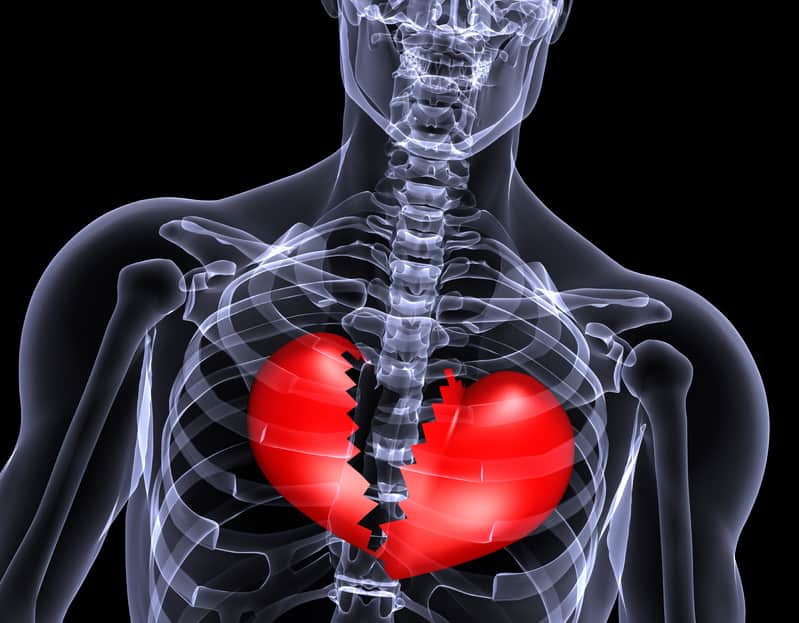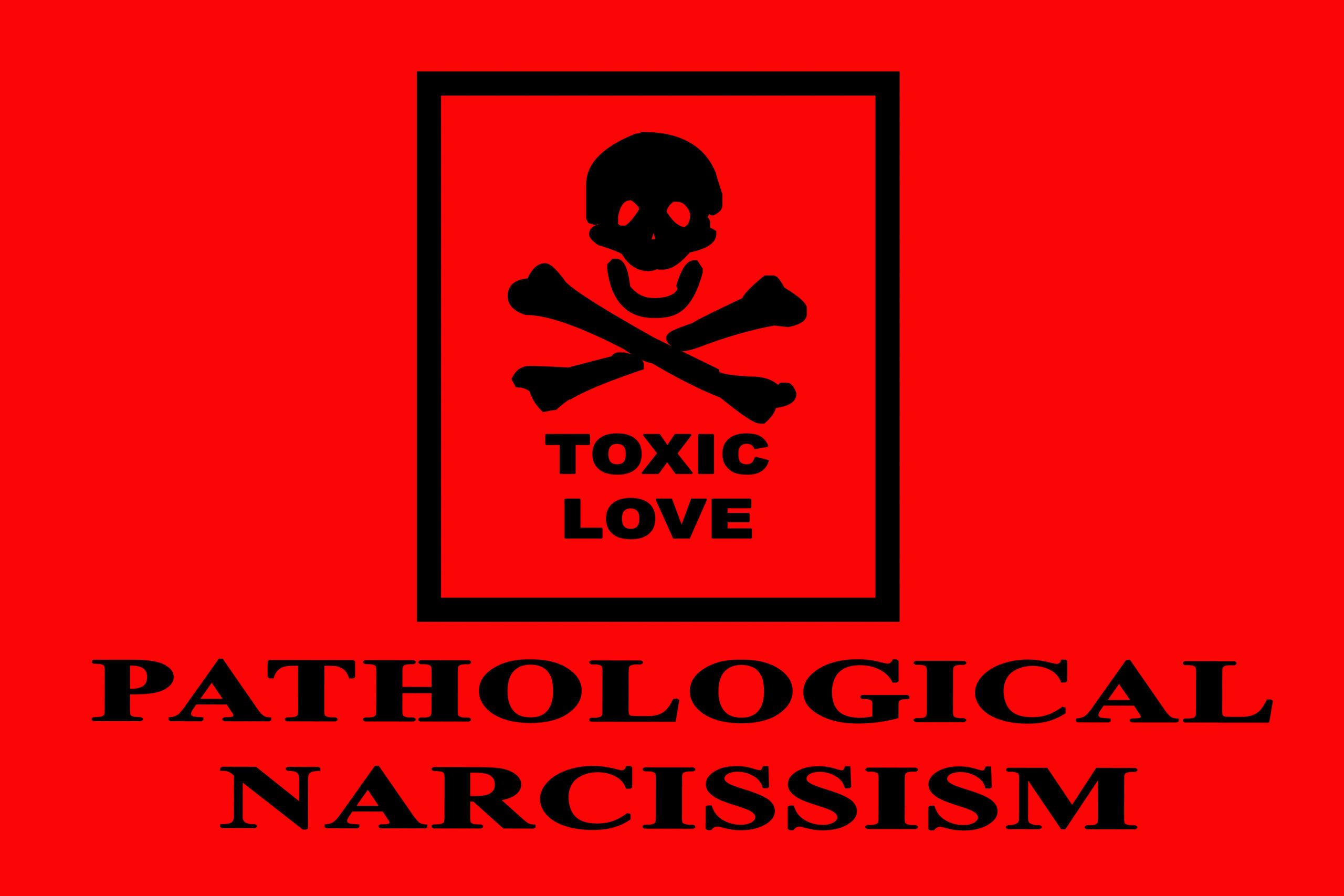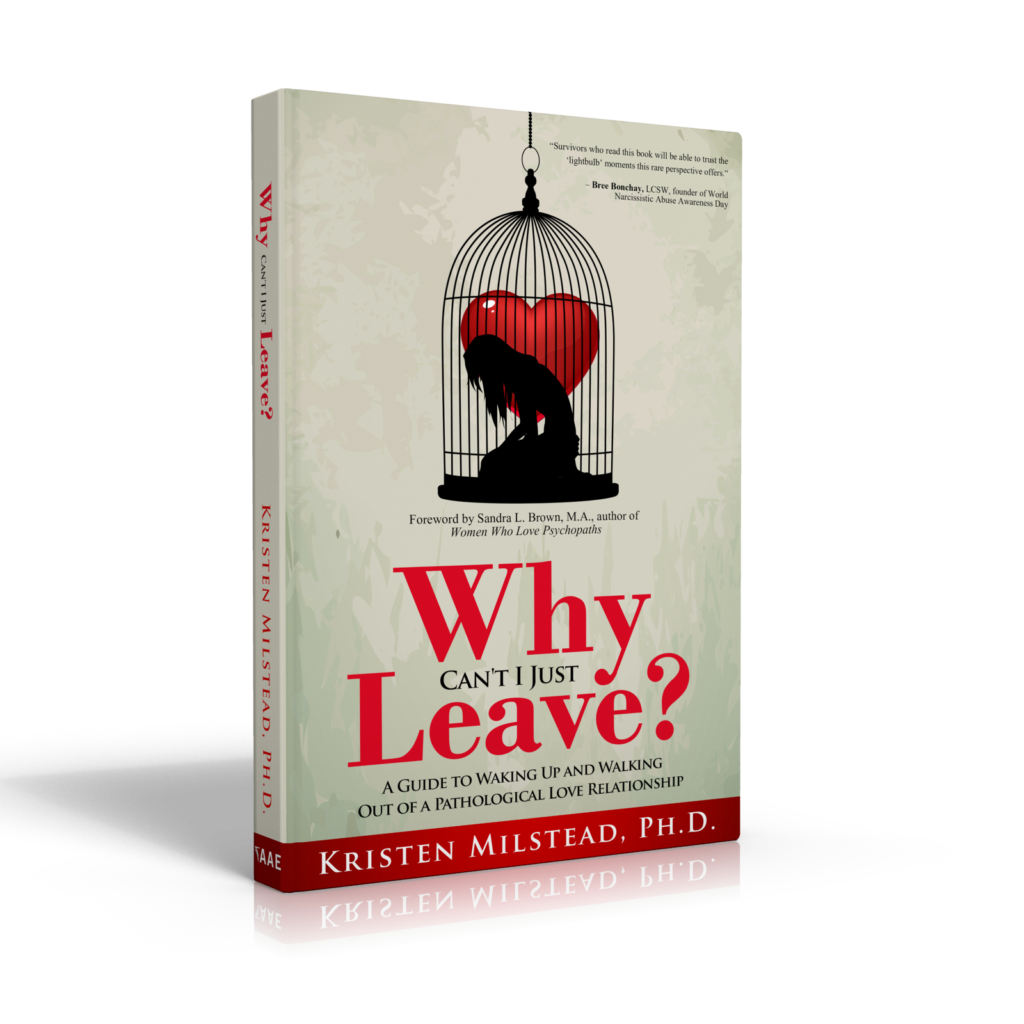Do narcissists know they hurt you?
For the entire relationship, we denied, rationalized, suppressed, excused, or wrote off the inexcusable things that they did to us in order to remain there in the relationship with them.
And yet it’s one of the questions that remains even after the relationship ends.
Did they know?
Shannon Thomas, who wrote the book Healing From Hidden Abuse, puts the answer like this: “Psychological abusers know when and where to turn off their manipulative games. They know precisely how to push all the right emotional buttons to get the victim’s frustrated response that the abuser craves. They know how to triangulate people and make themselves appear to be the victim. You tell me, does that sound like someone too ‘dumb’ to know what they do? They know.”
They know.
If we are being honest with ourselves, we knew that already, didn’t we?
Because there were the times when we brought our concerns or questions to the table. We asked why. We tried to confirm our suspicions or ask why things didn’t add up. We tried standing up for ourselves. We tried to explain that if only they would stop doing “it” (whatever “it” was) things would be perfect. And then things would be perfect– until the next time they broke our hearts.
They know.
So why isn’t Thomas’s answer to that question satisfying?
Because we are asking the wrong question.
The How Could You? Question
What we are really asking is something much more haunting than “Did they know?” What we really want to know is: “Knowing that they had to know, how is it possible that they could have done these things?
To negotiate the idea that they could have knowingly inflicted so much pain on us, we want to know:
- How much is calculated?
- How much is intentional?
- Why did it not seem to matter to them that they were hurting us, even after we told them?
So we come to try to answer the impossible, yet the answers to these questions are not straight-forward.
Accepting the answers to these questions requires understanding how conscienceless people view the world. At the heart of the answers is the essence of narcissism and what motivates narcissists when they interact with others.
Different Types of Narcissists Behave Differently
There are different types of narcissists with varying mindsets and goals in relationships. Because their needs are somewhat different, the harm they inflict can sometimes derive from different motivations. They are all viewing others as a means to an end, even when that “end” is different.
For the sake of simplicity in terms of understanding intent, calculation, awareness, control, and other concepts when it comes to thinking about narcissists’ infliction of pain, I’ll put them into two categories:*
- Type 1: Narcissists with no overlapping traits of Anti-Social Personality Disorder (including overt narcissists and vulnerable narcissists)
- Type 2: Narcissists with overlapping traits of Anti-Social Personality Disorder (including malignant narcissists, psychopaths, and sociopaths)
There are varying levels of awareness of self among the groups. By the nature of the disorder, most narcissists are completely unaware of what they are. Some may be aware that they are different from other people, but don’t know that they are “narcissists.”
Many are aware that some of their behavior is not acceptable and seek to hide it, but do not consider it “wrong.” Those that have some self-awareness of being different may perceive themselves as superior.
For example, they know that it is appropriate to express more empathy than they have in certain situations, so they will make a show of intentionally acting as if they have more empathy than they have in a moment. They often are not aware of why they are doing this, however (that is, that they are narcissists or that they are lacking something everyone else has).
And then there are those who are well aware of what they are and use the information about narcissism to hide their narcissism and become better at exploiting others. Almost none have an epiphany about themselves and want to change, especially malignant narcissists, because they do not view themselves as disordered– other people are the problem.
Do Narcissists Know They Hurt You?
It depends on the type of narcissist and also on the situation.
There is a chess-game-like element to this question, that implies the narcissist is sitting down plotting to hurt the people in his or her life.
Their behavior seems sometimes to be so intentional, from the love-bombing to the painful things we endured– and so systematic as well, as we talk to others and compare notes and learn that our stories are so similar– it’s difficult to believe that they didn’t plan it on purpose.
It seems that they must have found us, purposely love-bombed us with all of the flattery and praise, and then slowly torn us down to gain control over us.
It also seems so intentional sometimes when they say things to us and then cruelly smile when they watch us crumple in pain, or just sit there and do nothing while we cry and ask them to stop.
Most Type 1 narcissists, however, do not know what they are doing.
They flit from relationship to relationship, each time idealizing the new partner and then devaluing them as the flaws of that partner start to reveal themselves and the partner fails to live up to the expectations or starts to disappoint the narcissist by wanting to put his or her attention on something else, such as a hobby or other friends.
Type 2 narcissists, however, may calculate how to cause distress for no other reason than that they enjoy it. They may relieve their boredom by seeing our emotional displays or knowing that they can get reactions from us.
Self-aware sociopath M.E. Thomas, whom I would classify in the Type 2 category for the purposes of this article, writes in Confessions of a Sociopath, “That’s the trouble with seduction as a game played for the thrill of it. You can innocently go about seducing people, even enjoying the attention and affection for a time, and then suddenly, when you’re ready to move on, you’re left with this dependent, besotted person who can hardly stand to live without you…
“When I first met Morgan, I didn’t know she would be so much trouble… At first, I really relished the power I had over her. I got sick with enjoyment every time I noticed a crack in her voice or a nonsensical sentence escape from her lips…I knew I had one chance to get her back, so…I sent her a seemingly heartfelt but factually insincere e-mail confessing my love and apologies… She wanted to be hurt and I liked to hurt and watch her sink further into depravity. I was only sated when she hit absolute bottom” (p. 236-240).
Do Narcissists Inflict Harm Intentionally?
Yes and no.
Both types of narcissists enter relationships with others based on whatever resources they want to extract from the person. They may then engage in harmful activities while in the relationships that intentionally inflict harm or that incidentally inflict harm.
As described above, Type 2 narcissists, are perfectly willing and capable of intentionally inflicting harm for no other reason than their enjoyment.
Type 1 narcissists may also intentionally inflict harm in cases where someone has caused them a narcissistic injury.
They may get angry or offended and say hurtful, abusive things or exact revenge or punish in other ways. This is generally spontaneous and not well thought out (hence, not calculated), but it is intentional.
They may also engage in acts that are not spontaneous that harm us.
For example, narcissists may have multiple relationships simultaneously. They make a series of decisions or carry out a series of acts that lead to having these relationships, which harm or have the potential to harm multiple people.
Usually, however, the goal of the narcissist in this situation is not to harm any of the people involved but to benefit himself or herself. The harm, therefore, is not intentional, even though the relationships themselves are.
In other words, as Shannon Thomas says, narcissists know which acts they engage in are socially unacceptable and harmful– they just don’t care.
Why Did It Not Matter to Them That They Were Hurting Us?
This is perhaps the most troubling question of all. How are they able to do things that cause harm to us?
To understand how they are capable of doing this, we have to consider two concepts that play a role in how narcissists approach the world: “splitting” and “emotional empathy.” We also have to consider how narcissists engage in reasoning and make decisions.
First, pathological narcissists lack something called object constancy, and see people as either “good” or “bad,” splitting them into one or the other based on how well they are reflecting back to them their idealized selves.
When someone does something that feels like an attack to a narcissist (such as disagreeing with an opinion, which can be perceived as a criticism by narcissists), they cannot hold onto their positive feelings for that person.
They will see that person as an enemy and “split” them into the “bad” person in their minds, unable to integrate the feelings of disappointment or irritation they feel about their actions with the positive views and shared personal history with them. In those moments, that person has become an attacker who has wronged them, and the narcissist seeks only to punish them for it.
Narcissists do this because they lack “object constancy” and this is what enables them to hurt you spontaneously if they feel they have been wronged by you, such as when they lash out verbally. It may also cause them to seek revenge.
Furthermore, narcissists do not have the ability to put themselves in our shoes and feel our suffering, so though they may understand that they will inflict harm on you at those moments, it does not register at an emotional level with them, as they do not feel sufficiently attached or bonded emotionally to anyone enough to care if they feel pain or not.
They largely care only about their own pleasure and avoidance of pain. Though they may not always intentionally harm others, they are largely indifferent to it. This is what is meant by the lack of emotional empathy.
These two missing qualities, lack of object constancy and lack of emotional empathy, go a long way toward explaining how those who lack a conscience make decisions.
M.E. Thomas states that most people use “emotional shortcuts” to make decisions in a moment or when they don’t have all the information, such as, automatically choosing not to do certain things that would hurt others because of how it would make them feel. She claims that emotional shortcuts are not available to sociopaths, so they use other ones.
“Many sociopaths use the shortcut of ‘anything goes’ or ‘I am only in it for me…’ Some sociopaths are capable of reigning in their impulses enough to decide that jail time is not to their advantage so they avoid major violations of the law,” M.E. Thomas writes. “Other sociopaths have settled on a more ‘principled’ approach to life… The one thing that sociopath ‘codes’ tend to have in common, though, is that they don’t fully map with prevailing social norms, those unspoken rules, and customs that govern behavior in a group.”
Narcissists, sociopaths and others who are unable to feel empathy or remorse for their behavior have an understanding of what others consider moral, but use it in the calculus of their rational decision-making insofar as they weigh the consequences of getting caught doing something versus the benefits of doing it.
Fathoming a Lack of Conscience
Robert Hare, the author of Without Conscience, writes that psychopaths don’t often weigh the pros and cons of doing something. They often do it “because they feel like it.”
This is unfathomable to us.
This is why we keep asking the question, “Do they know they’re hurting us?”
When we know we are hurting someone, that fact enters into our decision-making to act or to not act. If we learn or are told– especially by someone we love– that we have hurt them, we make an effort to stop doing what’s hurting them.
This seems so basic to an underlying concept of what it means to be human that we cannot stop asking how it was possible that they did not consider our pain. It feels like a moral failing. Indeed, it is.
The key lies in understanding what they are and in what they lack.
“But is there is a unity in our emotional reaction to the moral struggle between good and evil, a near-universal seventh sense that can be relied on to ignore all of our differences and borders? And if so, how does it feel? …Emotional attachment is part of most of us, down to the very molecules that design our bodies and our brains, and sometimes we are powerfully reminded of it. Beginning in our genes and spiraling outward to all of our cultures, beliefs, and many religions, it is the shadow of the whisper of the beginning of an understanding that we are all one. And whatever its origins, this is the essence of conscience.” -Martha Stout, The Sociopath Next Door
Don’t forget to check out these resources:






11 Comments
Theresa
Excellent article! This answered all my questions ? up untill now, I thought a lot of articles were contradictory, but yours has clarified everything ?
Jana
Your words are a God send. I was blindsided by my ex after living together happily for three years. World wind beginning, so intense and then things seem to settle down to happy normal. A month before we broke up, he looked at me with tears in his eyes and a smile on his face and said “I have never had any doubts about us, not one”…then one morning I woke up to this cold man who told me it was over. He said he had been feeling this way for a few weeks…and then, was with another woman three weeks after we ended.
We never had ugly fights, just what I thought were normal disagreements. Looking back, I can now find incidents where he would do something rude, I would bring it up but it would still happen. I wrote it off to no one is perfect. So, I have wondered if he is an actual narcissist, the “devalue” stage happened but it happened in weeks, and wasn’t horrific, just a feeling of things being “off”. But his coldness, his total lack of empathy for destroying my world, his moving on to someone else immediately and never looking back fits. We broke up a year ago, he has since broken up the same exact way with the woman after me, out of the blue through an email. She is devastated and he is already with someone new.
My struggle is that I don’t have especially awful times to think back on, just a happy life…other than, of course, that awful morning. Its like two different people and if I can just believe that the one he showed that morning was the real one, I think I will start to heal.
Simon
I have been entertaining the notion that narcissists may be non-sentient beings. They are alive in the biological sense only. The brain processes data as does a pocket calculator or desktop computer but is no more alive than either. No “ghost in the machine”. No “I think therefore I am”. Literally there is nobody home.
Kristen Milstead
Hi Simon: Now that is a very interesting idea. I find myself getting lost in these philosophical thoughts myself at times too: what does it mean to be human? What is love? What is evil? Whose reality is “real?” You may enjoy reading Neuroinstincts, a website by a neuroscientist named Rhonda Freeman, who discusses the brains of narcissists and psychopaths. There is also a book called The Wisdom of Psychopaths I found interesting, about how the brains of psychopaths work across many different contexts. It’s difficult to read if you’ve been hurt by one, but it helped me to learn a lot. I appreciated your comment. Thank you for taking the time to leave it. -Kristen
Elizabeth Gomez
Stunning article!
Lizzie
Kristen – this article has been so helpful to me.
Thank you x
Kristen Milstead
Hi Lizzie: I’m so glad to hear this! This information was so helpful to me once I sorted through the information and research on different types of narcissists and their self-awareness and motivations. I believed it could be useful to others. I hope you are well. Thank you for reading and taking the time to comment. Stay strong! -Kristen
Liz
Their feelings at the time of what they experienced that made them this way & the anger & hurt they feel takes over. They are hurting who hurt them. Not so much for revenge but for a reckoning. For whoever inflicted their pain & suffering to be made accountable & justly punished. They had complete trust in the person who betrayed them. They had no power, no control, no choice. When I was growing up. As a 5-6 year old, I saw the terrible, awful abuse of a family member just a few months older than I am. I would sneakily go help her whenever I could. At that age you don’t know what to do. I was deathly afraid if I was found helping her I not know what would happen to me. Looking back, it’s unbelievable to me how your own mother could do those things & treat their own child that way. I sometimes get my self into trouble standing up & defending someone against being wronged.
Tammy DONOGHUE
I have recently started to realise that my first encounter with a narcissist was not my ex but my mother… funnily enough I remember telling him in the early days that his behaviour was not acceptable as for some reason it was making me feel those same horrible feelings I felt as a child..
Over the years my relationship with my mother has been on and off and she will entice me back with her initial caring mother act only for it to change when she cant keep it up.. after my horrific ordeal with my ex, she contacted me and was supportive at first but just a few months on she told me that she was bored of hearing about what happened to me and I was living in the past now and had to let it go.. this was after I probably told her no more than a handful of things that he had done in just a few conversations via email. I have been away from this man only a matter of months after he beat me and abused me for a year resulting in me having to flee my home and the country with just the clothes on my back in fear of him killing me… but in my mothers opinion after a few months it was becoming boring to hear and I was stuck in the past and I should have let it go by now…. I realise that no mother would be that cold unless she was also a narcissist
E. Ericson
I think a family of origin study would be very interesting. I can document this abuse cycle through three generations in my family. It does not surprise me to see it in two of yours.
We have a misguided sense of what love is. The relationship hurts, It feels like home.
Kimberly A Singer
Omg i have never heard someone describe the character of my mother and our waste of a relationship like you did just now. I can’t believe that you no and have the experience in your life exactly is mine. I’m so sorry for you as I know it has been a mind **** for me to the point where I don’t even care anymore she’s a ***** and she’s caused enough damage so last my lifetime. Thanks for sharing what you did it certainly makes me sad but relieved at the same time [admin edited]